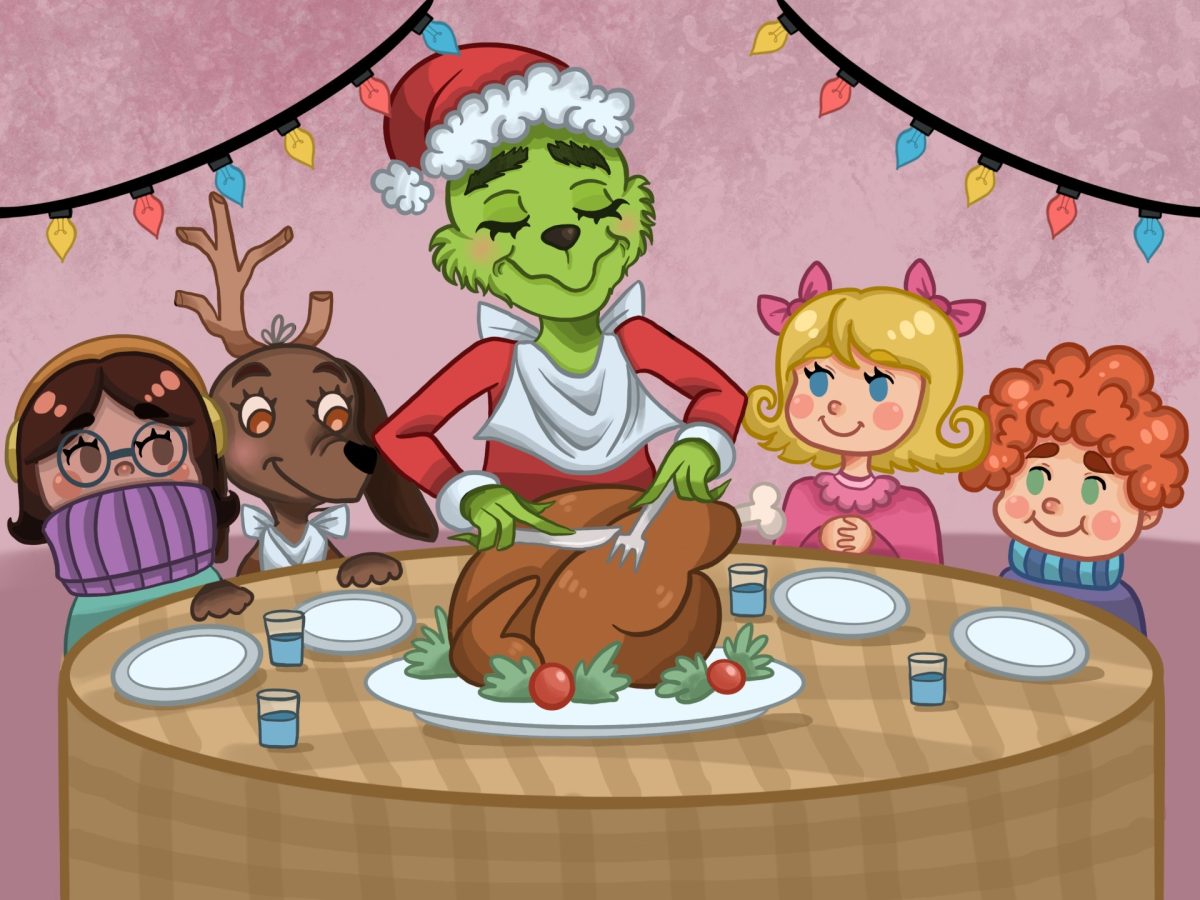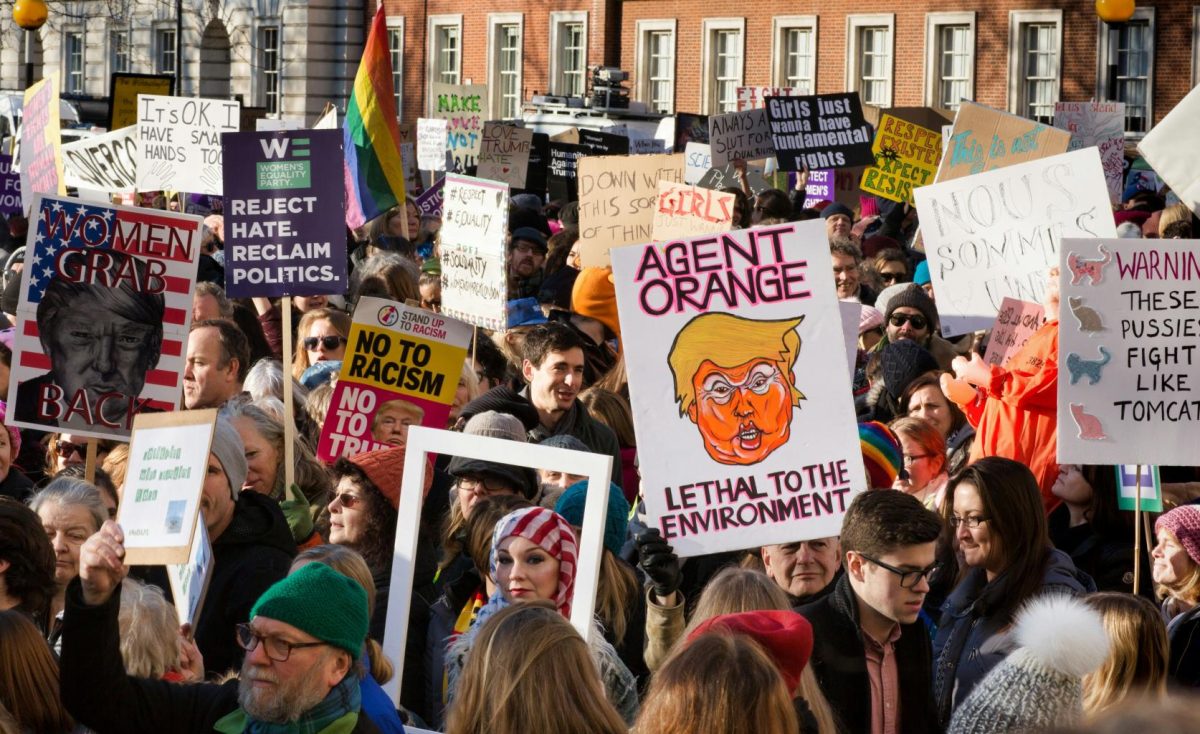“Maybe Christmas… doesn’t come from a store. Maybe Christmas… perhaps… means a little bit more!”
So proclaimed the Grinch in the classic Dr. Seuss picture book How the Grinch Stole Christmas! Even after their presents vanished, all the Whos down in Whoville still celebrated Christmas with joy, shocking the Grinch who thought Christmas could only come in “packages, boxes or bags.”
Every December, I rewatch the 1966 Grinch cartoon and enjoy other Christmas movies, music, decorations, foods and traditions with family and friends – making it absolutely, as the Andy Williams song goes, “the most wonderful time of the year.”
But unfortunately, like the Grinch, many Americans forget what makes Christmas so special. While there’s nothing wrong with exchanging gifts as part of your holiday tradition, an excessive focus on buying consumer goods is harmful to the environment, our wallets and our holiday spirit alike.
Materialism around the holidays is an American ritual dating back to the 1940s, when postwar consumer spending was encouraged as a “patriotic” way to boost the economy. Since then, holiday spending has steadily increased over the years, projected to reach a record $1,638 per shopper in 2024. And a survey in early October found that nearly half of Americans are still paying off debt from the last holiday season.
All that shopping hurts the environment as well as our bank accounts. Americans produce 25 percent more waste in the weeks between Thanksgiving and New Year’s Day, in addition to other “hidden costs” like increased carbon emissions from manufacturing and shipping. As sad as it sounds, many Christmas gifts themselves are destined for the landfill, particularly “junk gifts” that don’t consider what the recipient wants or needs.
And ironically, the gift-shopping mania that starts every November doesn’t actually benefit consumers as much as advertisements claim. According to industry experts, many supposed “Black Friday deals” are nothing more than corporate sleights of hand.
Merchants quietly inflate prices at the start of November – say, raising the cost of a television from $499.99 to $799.99 – so that a return to the original price on Black Friday looks like a huge bargain, even as you actually pay the same amount you would have two months ago.
In fact, the very name “Black Friday” is a reference to companies being “in the black” with increased profits. The date was always meant to benefit retail corporations, not regular people who just want to celebrate the holidays with loved ones.
The irony of the day after Thanksgiving becoming a pseudo-holiday dedicated to consumerism was not lost on the anti-consumerist Canadian nonprofit Adbusters, which declared the date “Buy Nothing Day” instead.
“This Friday, keep the credit card holstered. Keep your cash in your jeans,” reads the Adbusters campaign page. “Don’t buy. Just breathe.” I agree: resist the siren call of corporate marketing and you’ll be better off for it.
But resisting consumerism doesn’t mean you can’t give gifts at all. The joy of giving is a natural human tendency that actually makes us happier than “getting,” according to psychologists’ research. So the question is, how can we do it more ethically?

First, consider giving to those in need. Many charities will match donations on the Tuesday after Thanksgiving – aptly named “Giving Tuesday” – and local toy drives or “family giving trees” can deliver holiday gifts to people who couldn’t afford them otherwise.
If you want wrapped presents under a tree for your loved ones, it’s smart to give fewer, yet higher-quality gifts, and to ask people what they want ahead of time to ensure they’ll like it.
Handmade gifts are also a great way to support local artisans over big corporations, and the Bay Area has many holiday craft fairs throughout November and December.
And of course, if you know a craft yourself, making something unique for someone – a drawing, a knitted scarf, a batch of home-baked cookies – can be much more meaningful than a store-bought object.
Lastly, consider gifting experiences instead of objects. My family likes to see A Christmas Carol at the Lesher Center for the Arts every December. But the possibilities for outings are endless: concert tickets, a trip to the museum, a meal at a nice restaurant. There are many opportunities to make memories together that don’t involve purchasing objects.
After all, consider how the Grinch story ends. The redeemed protagonist returns all the presents to the Whos, but more importantly, he also joins their celebration – discovering quality time with newfound friends.
Generosity and togetherness are what really matter, not the “stuff” we accumulate. This holiday season, let’s celebrate with that in mind.











































































